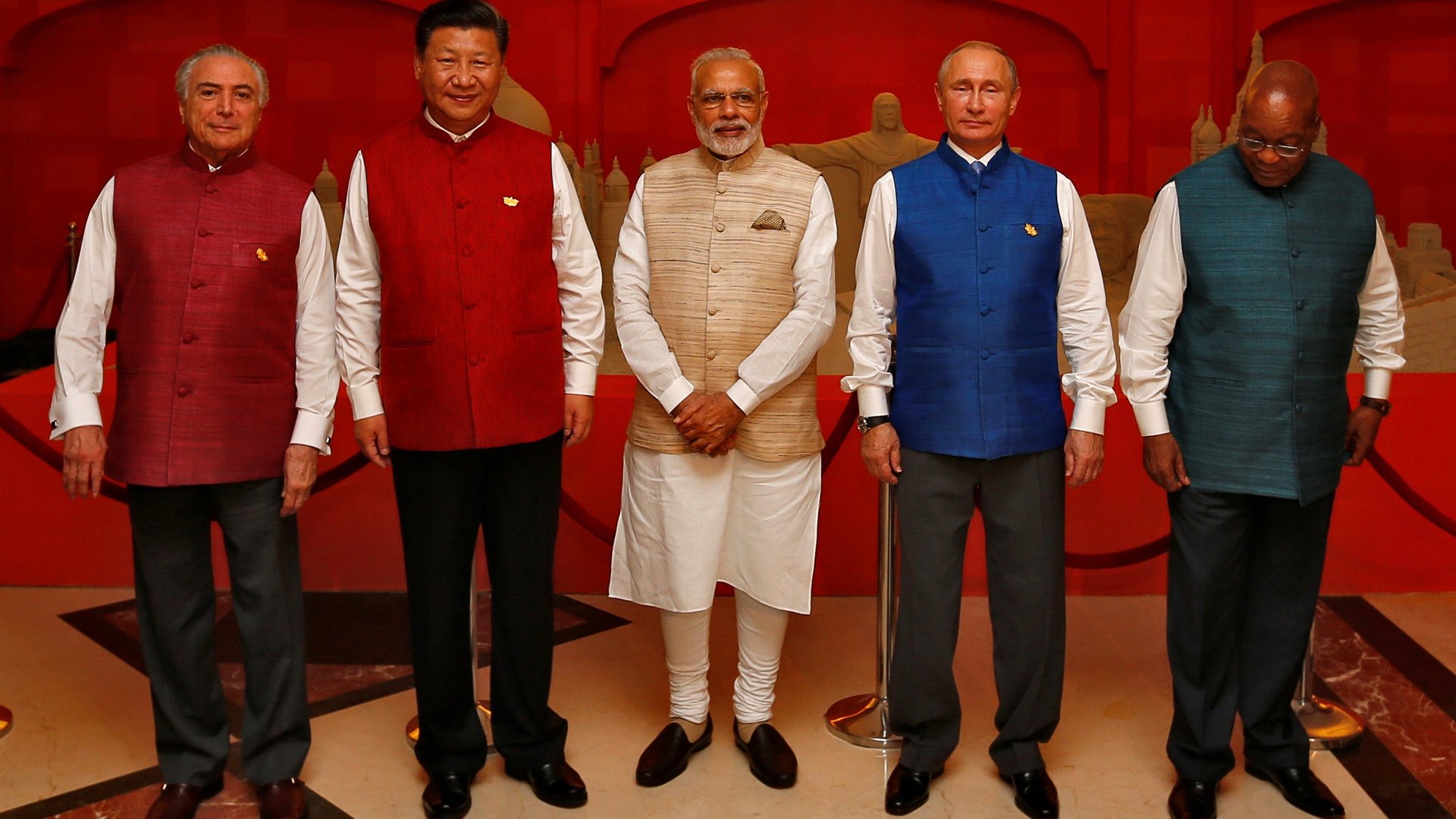The BRICS have given South African president Jacob Zuma enough cover to criticize the major credit-ratings firms
South Africa’s economy is struggling. The country barely escaped junk status when the major ratings firms assessed South Africa earlier this year. But asked by opposition lawmakers about how he would handle a credit downgrade, president Jacob Zuma was unfazed, and suggested that perhaps it’s time to assess the assessors instead.


South Africa’s economy is struggling. The country barely escaped junk status when the major ratings firms assessed South Africa earlier this year. But asked by opposition lawmakers about how he would handle a credit downgrade, president Jacob Zuma was unfazed, and suggested that perhaps it’s time to assess the assessors instead.
“The manner in which the ratings agencies have operated so far leaves some concern to particularly developing countries and members of BRICS,” Zuma told the lower house of parliament in a televised session on Oct. 25. “You will appreciate the concentration of ratings agencies doesn’t seem to be well balanced, according to the view of BRICS.”
BRICS is the geopolitical alliance between Brazil, Russia, India, China that was formalized in 2006 as BRIC, with South Africa joining in 2011 to add the “S.” Goldman Sachs economist Jim O’Neill first coined the catchy acronym in 2001 to describe a new economic order of emerging economies
The five economies have since failed to really tilt the global economy’s scales in their collective favor. Brazil’s economic crisis has worsened, Russia is struggling to get out of its own recession, China and India have struggled to maintain their growth rates, and South Africa’s economic struggles have been well documented.
Goldman Sachs may have given up on BRICS as an investment thesis, but at the BRICS summit in Goa, India, earlier this month, the countries reaffirmed their bond, and promised to speed up their plans to establish an alternative to the major ratings firms: Moody’s, Standard & Poor’s, and Fitch, all of them western-based. Concrete plans for the agency were not publicized.
Seemingly emboldened by his economic allies and even the possibility of an alternative ratings agency, Zuma questioned why the existing ratings firms weren’t more focused on Europe, where the global economic crisis, he noted, had left many countries facing financial difficulties.
“There are no ratings agencies that visit them from time to time to rate them,” he said. “But in developing countries they come, rate, make public statements continuously.”
In fact, all three ratings firms regularly assess Europe’s credit ratings and economic outlook. They also regularly assess South Africa. Their last visit there caused quite a bit of anxiety, but Fitch, Moody’s and Standard & Poor’s all maintained South Africa’s national credit rating as stable or positive.
When the ratings agencies return, however, they’ll find a country circling around an economic recession, a national treasury mired in controversy, and a finance minister facing fraud charges. Zuma may have no choice then but to confront the ratings firms directly.